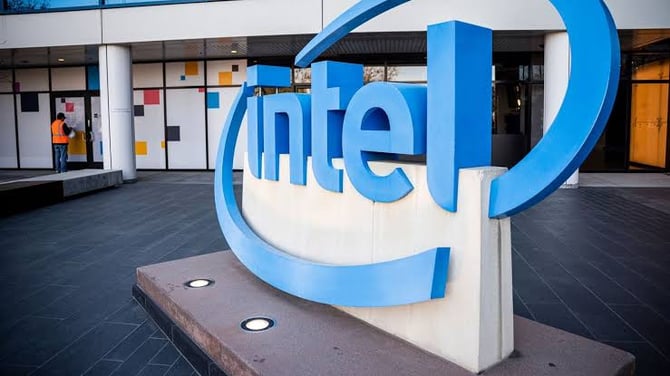Intel Struggles to Reclaim Its Place in Tech

Intel, once the undisputed king of computer chips, is now battling to stay relevant in a rapidly shifting tech landscape. The company’s all-time stock high of August 31, 2000, feels like a distant memory, with shares now down 68% from that peak. Layoffs of 15% of its workforce aim to cut $10 billion in costs, but the challenges run deeper than cost management.
Intel missed two transformative tech waves: mobile computing and artificial intelligence. ARM, a lesser-known British chip designer, seized the mobile market in the 2010s, leaving Intel to scramble.
Similarly, Nvidia has dominated the AI space, leveraging its GPU technology to become a $3.4 trillion behemoth—33 times Intel’s current $104 billion valuation. Nvidia’s rise casts an unflattering light on Intel’s struggle to adapt to AI’s demands despite efforts like the Gaudi AI chip, which failed to gain significant traction.
Even Intel’s core business is slipping. Its share of PC and server markets has dwindled, now sitting at 65% and 85%, respectively. AMD and ARM have taken advantage of Intel’s delays in innovation.
What Does This Mean for Me?
Analysts have started to speculate about a potential spin-off of some of Intel’s divisions or even a takeover by rivals like Qualcomm. Yet geopolitical risks, particularly China-Taiwan tensions, could bolster Intel’s US-based manufacturing in the future. For now, Intel faces intense pressure to identify and lead the next tech revolution or risk permanent decline. Investors are watching closely to see if its next moves can restore its once-legendary stature.
More News

Wall Street Rallies as the S&P 500 Pushes Deeper Into Record Territory

Novo Nordisk Shares Soar as FDA Clears First Weight-Loss Pill

From Comeback to Contender: Can Europe’s Banks Deliver Again in 2026?

Oracle’s Miss Stirs Fresh AI Bubble Jitters

Netflix’s $72bn Power Play Sets Up a Streaming Shockwave

HP Bets on AI as Cost Pressures Mount and Layoffs Deepen

SoftBank Cashes Out of Nvidia to Double Down on AI Bets
